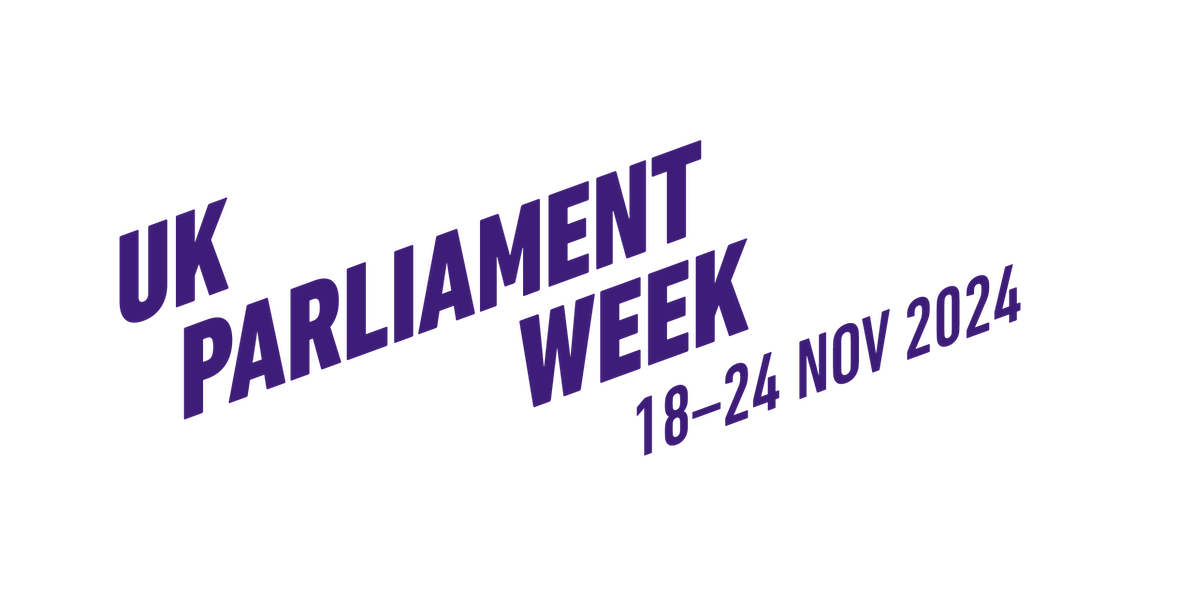The Open University
The Open University is involved with UK Parliament Week as the values of the two organisations coincide: both seek to make a difference.
UK Parliament Week is about engaging with people from across the UK, empowering them to get involved, and to help them make a difference.
The Open University’s mission is to be open to people, places, methods and ideas. We promote educational opportunity and social justice by providing high-quality university education to all who wish to realise their ambitions and fulfil their potential. Our vision is to reach more students with life-changing learning that meets their needs and enriches society. In achieving our mission, we are committed to, and are guided by, the enduring Open University values of inclusivity, innovation and responsiveness.
All about ‘Changemakers’
In 2020 The Open University launched its ‘Changemakers’ social media campaign, part of the university’s partnership with UK Parliament Week.
This campaign, designed with students as partners as part of our ‘Open Politics’ initiative, engaged Open University students and the wider public in making a difference by learning about political engagement. The campaign asked people to think about individuals who’ve made a change in society and the impact they’ve had (politically, democratically, socially), with people submitting their nominated changemaker on Twitter (search #OUatUKPW on twitter to see the submissions).
We have built on our partnership with UK Parliament Week, and the work undertaken so far by ‘Open Politics’, with two fantastic resources for UKPW 2022:
- A PDF guide to making change though engaging with the UK Parliament
- The free Open Learn course ‘An introduction to making political and social change’, which builds on the above guide, but also includes content on working with the Scottish Parliament, Welsh Parliament, and Northern Ireland Assembly.
In these resources we have highlighted some of the changemakers nominated by OU students and the wider public. We hope they will help you to understand how you can be a changemaker, with the nominations an inspiration to making change, whether big or small.
Discover more
- About The Open University (http://www.open.ac.uk/)
- About ‘Open Politics’ (https://fass.open.ac.uk/polis/outreach)
- Study politics at The Open University (http://www.open.ac.uk/courses/politics)
- Learn about ‘Media, politics and society’ through an OU short course (https://www.open.ac.uk/courses/short-courses/adxs001)
- Free learning from The Open University (https://www.open.edu/openlearn/society)
Want to run your own online engagement project?
Online engagement involves using social media and social networks to engage, connect, and converse with people. The engagement will probably be measurable, and might include things like the number of downloads or the number of likes, or might involve two-way conversation and the development of a network, depending on the platform.
A key part of ‘Changemakers’ is engaging with students and the wider public online, utilising the social media platform twitter.
There are benefits in engaging online to you as an organisation:
- You can increase your media profile
- You can reach a broader and more diverse audience, which in turn can increase engagement
- You can engage people in innovative ways (social media, videos, links to relevant content)
- It can be a relatively cheap way to run a project (staff time is often the major cost)
- You can gather data about engagement quite easily (number of ‘hits’ for instance), which is useful when reporting findings
- You can get real-time feedback, making the project more responsive
- You can be more transparent and build trust amongst your stakeholders, which in turn helps your profile
- If you’re a university, you can use your online engagement as part of a REF submission.
There are also benefits to participants:
- Barriers to participation are removed (geography, travel/transport, caring responsibilities, work, budget constraints)
- Resources are available online, leading to increased awareness
- There are opportunities to community build, within and outside the project
- There are opportunities to increase employability skills, particularly for participants you engage as partners in design of the project.
Hints and tips for organisations when getting started:
- Think about your aims and the audience, and then the best platform to meet those needs
- Think about the different technology and platforms available and the pros and cons of each: do your research, and think about what the technology/platform can offer rather than simply copying face to face activities
- Think about social media versus social networking: both involve online activity, but the former focuses more on broadcasting messages to a broad audience, and the latter two-way communication and the development of relationships
- Think about engaging participants (such as students) as partners in the design of your project, to get their key insights and to help with community building
- Think about representativeness, in terms of 1) reaching the right number of people, 2) reaching a diversity of people
- Think about accessibility and disability, making sure that what you do is available to as many people as possible (so, think about alternative formats, e.g., if using videos make sure you provide captions)
- Think about privacy and safeguarding; ensure you are gathering and storing data appropriately, and participants are aware of what’s happening with their data
- Think about evaluation, and the best way to gather feedback and data (qualitative or quantitative, for instance). This links back to your overall aims.
